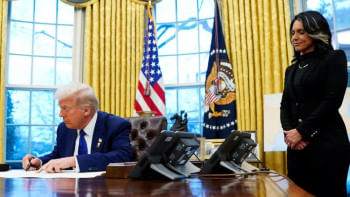Who pays for it all?
PEOPLE are overburdened with medical bills. What should be a simple visit to the nearest hospital or clinic often turns into a financial nightmare. The first thing that lands on the visitor is a prescription that is long and often includes a visit to a diagnostic centre for a barrage of tests that involves a significant amount of expenditure. This is extra money that could be better spent on education of children or in investments to secure the financial wellbeing of the family.
A recently organised seminar in the city brought together policymakers and health specialists and we are confronted by the news that the out-of-pocket (OOP) payment is around 63 per cent of total health expenditure in the country. It is hardly surprising that exorbitant amounts of money are being spent by the average citizen on overpriced drugs and diagnostic tests which is leading to some 4 million people being driven into poverty each year according to a leading economist. The public health care system remains inadequate primarily due to the poor allocation of resources in the national budget, which forces people to spend a sizeable amount of cash on availing health services, primarily in the private health sector.
Precisely when and how we decided to outsource public health care to the private sector and the big pharmaceuticals is a big question. A patient going to any public hospital will be confronted with a myriad of problems. Equipment is either inoperable or if operable, there are no technicians to operate them, which means the patient will be referred to one of the private diagnostic centres. Patients are often prescribed medication which are of the expensive brand and while there may be generic ones available; these are kept off the list. There have been allegations of a nexus between doctors and the drug companies and it is difficult not to believe that, given the army of pharmaceutical company representatives flocking to the government owned hospitals, often asking patients to see prescriptions – perhaps to make sure that their company products have been duly highlighted.
According to the World Health Organisation, the average per capita expenditure for medication should be US$54. The government allocates $27 and thanks to procedural bottlenecks and other impediments, only $9 reaches the intended citizen. Then there is of course graft and other mismanagement that eat away at the pie. While the well-to-do may be able to visit private clinics and cover the rising cost of medicine and tests the poor do not have that option in our country. Though making medicine affordable should be a national priority, we are perplexed as to why there is little in way of government monitoring as to how pharmaceutical companies price products. Indeed, going by proposals of introducing Value Added Tax (VAT) in the current financial year (2015-16) would aid in further increasing medical expenses for the average citizen.
Yes, there has been substantial increase of healthcare infrastructure at both government and private levels. But the boon of improved healthcare is available only to the middle to higher income groups and not the general public. In fact, if we look at the national healthcare financing strategy, budgetary allocations have been decreasing, for instance, posted a -10.24 per cent in FY 2013-14, which went up 13.71 per cent in FY 2014-2015 and dropped again in the latest FY 2015-16 by 2.67 per cent. So, what are the poor people to do? With government facilities sadly inefficient to provide medi-care in terms of quality treatment, they flock to private clinics, which merrily fleece them on this charge or that.
How is it that the Directorate General of Drug Administration is kept sadly bereft of modern equipment to test the quality of medication? Why does it remain understaffed? Why do we not have a policy that is enforced to govern how pharmaceutical products are priced and why is there not greater push to make more generic brands available on the market? Is it really any wonder that the people are being taken for a ride in laissez faire economy where the authorities responsible for looking after public health act like absentee landlords?
Experts have been quick to point out that there needs to be greater investment in the health sector. It also calls for an active involvement of the concerned ministry to oversee that public health is safeguarded. To ensure quality healthcare, we need far more hospitals that are adequately staffed and more importantly, there needs to be serious oversight that resources allocated are properly used. And while we applaud the gains made by the pharmaceutical industry, which is being touted as the next big miracle for the economy (after readymade garments), policymakers cannot outsource public health to big business en masse. Oversight on proper utilisation of resources has to be backed up by public watchdog bodies that will monitor pricing of medicines and healthcare services. There has to be accountability of both government and private sector healthcare practitioners.
The writer is Assistant Editor, The Daily Star.

 For all latest news, follow The Daily Star's Google News channel.
For all latest news, follow The Daily Star's Google News channel. 



Comments